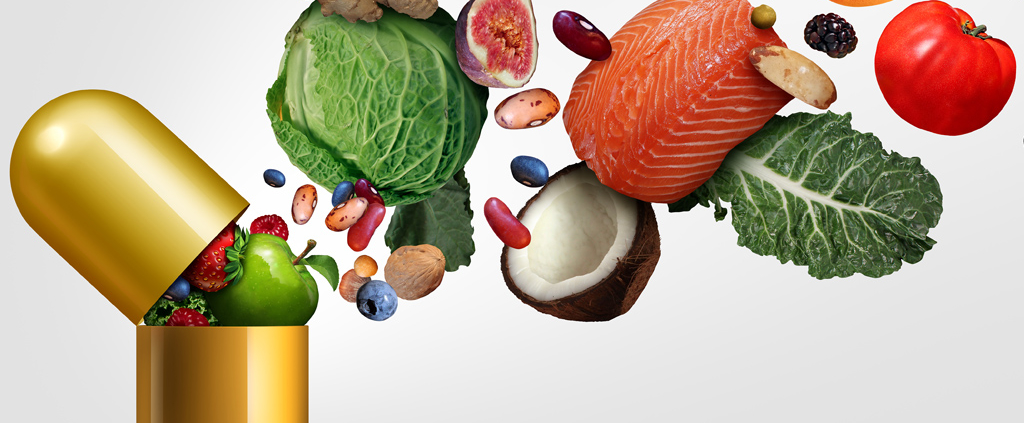A Cardiologist’s Exclusive Guide to 5 Favorite Vitamins and Supplements
The demands of the modern world take a heavy toll on our body.
Lack of sleep, stress as well as a diet filled with processed foods wreak havoc on our internal machinery. Our body may suffer not only from lack of vitamins and minerals, but also coenzymes which are metabolic buddies needed to produce energy, promote bodily functions and cell growth and prevent aches and pains from which we often suffer.
Food is an excellent source of vitamins and minerals. But those rich in particular nutrients are not always our favorites. And we tend not to eat enough of them to get the results our body needs for a healthy lifestyle.
Coenzyme Q10 (CoQ10): The Energizer Vitamin
A good example is Coenzyme Q10 (CoQ10). Our body normally produces a small amount of CoQ10 but our lifestyle and certain medications may decrease our natural supply. CoQ10 is abundant in organ meats, which we may not normally include in our diet. It is also found in beef, mackerel, and sardines.
How often are you willing to eat liver and sardines?
When Coq10 is lacking, we may feel a lack of energy as well as muscle aches and pains.
And if we are on statins for cholesterol, beta blockers for blood pressure, diuretics such as furosemide, antibiotics or hormones, these deficiencies are often more pronounced and supplementation is essential.
Vitamin CoQ10 or its biologically active form, Ubiquinol, can easily be found in the vitamin section of the pharmacy or supermarket.
Top Five Favorite Vitamins and Supplements
A top vitamin on my list of favorites is Vitamin K2 which helps prevent chronic disease and maintain your cardiovascular health, strengthen your bones, promote cognitive health and even improve your skin. By the way, there is actually a Vitamin K1, which we learned about by accident. For years, people who took coumadin (warfarin) were advised to limit their vitamin K intake as it potentially counteracts the anticoagulant properties of warfarin. Unbeknownst to researchers, Vitamin K comes in two varieties. Vitamin K1 counteracts the effects of warfarin. But Vitamin K2 pulls calcium out of arteries and puts it back in your bones and has nothing to do with coagulation. So we were advising patients to avoid foods like green leafy vegetables, dark chicken meat and egg yolks which are excellent sources of Vitamin K2.
Magnesium is another underrated mineral which has been known to prevent cramps in your legs, calm your nerves and lower your blood pressure. Avocados, dark chocolate, nuts, seeds, tofu, legumes and bananas are tasty sources of magnesium. But you may not be getting enough of it even with a healthy diet. A simple blood test can determine if you need more or less of this simple nutrient.
As a cardiologist, I am also a fan of the more well-known supplement Omega-3 fatty acids which lowers triglycerides and helps with sugar breakdown. Don’t let the word fat in the name be a deterrent since this is one fat you absolutely want to include in your diet. Found in fish such as mackerel, herring, oysters, sardines, salmon as well as nuts, flaxseeds and cod liver oil, omega-3 fatty acids may curb stiffness and joint pain and is important for visual and neurological development in babies and dry eyes in adults. When possible, try to get omega-3 fatty acids from foods rather than supplements. But if fish is not your favorite, then a supplement may be a consideration. A word of caution: make sure you buy this supplement from a reliable source as some brands may not be free of heavy metal impurities.
Equally well known is Vitamin D3 which we believe is essential for calcium balance and strong bones. Less well known but equally as important is the role Vitamin D plays in reducing cardio-vascular disease as well as stroke and peripheral vascular disease. Vitamin D sources include sun exposure and your diet. Cheese, egg yolks, sardines, fortified orange juice, milk and yogurt as well as canned tuna are excellent sources of Vitamin D. But getting enough Vitamin D through your diet alone is challenging. Most adults should have their levels checked with their physician before starting any supplement.
Let’s end with Vitamin B complex, nutritional supplements which have all eight B vitamins which are essential in producing energy and lower levels of inflammatory markers.
Good new. B vitamins are found in many foods like meat, dairy, eggs and seafood.
If you are eating well, you are probably covered except during pregnancy where your body demands more B12 and folate to support fetal development. Some medications do interfere with the absorption of Vitamin B and some of us with certain medical conditions are susceptible to nutrient deficiencies.
When it comes to your health, there is no one size fits all. Multivitamins may seem like a quick and easy answer. But research shows that men who take a daily multivitamin have an increased risk of developing prostate cancer. While causality has not been established, I personally am not a fan of the shotgun approach. Take the time to talk to your physician and create a targeted therapeutic plan to balance the heavy toll life takes on our body.
Together we can balance all our individual health needs and wants and create a comprehensive strategy to a perfect “Vitamin You.”




















